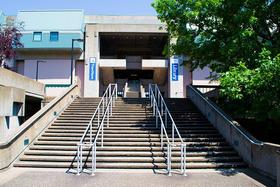Students who attend community college over a traditional four-year university do so to save money or to have greater flexibility with their classes. Just because you choose a community college, however, doesn’t mean you have to miss out on a true college experience. Many community colleges are starting to offer their students the same benefits that more traditional colleges offer, including study abroad opportunities. If you are a community college student considering a study abroad program, take the time to learn the pros and cons before you make your choice.
Can Community College Students Study Abroad?
Unless you’ve done some research, you may not know that studying abroad is even an option for community college students. The fact of the matter is, however, that more community college students are taking advantage of study-abroad programs than ever before. Research shows that nearly 6,000 community college students participated in study abroad programs from 2012 to 2013. That was a 12% increase from the year before, and the number continues to rise. Even though more community college students are studying abroad each year, they are still just a drop in the bucket. Regarding the total number of American students who study abroad each year, community college students only represent about 3%.
What Are the Pros and Cons of Studying Abroad?
Before you decide to study abroad, there are many things you need to think about. Arranging a study abroad program requires a lot of preparation, and it’s not something you should

































